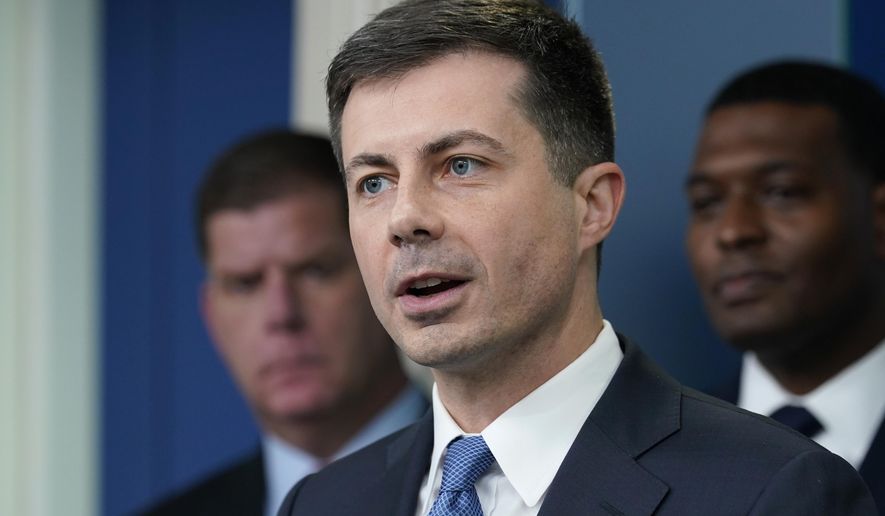WASHINGTON (AP) — The Senate was moving quickly Thursday in an effort to avert a rail strike that the Biden administration and business leaders say would greatly damage the economy.
Senate Majority Leader Chuck Schumer announced a deal to hold a series of three votes related to the rail negotiations, with the final vote on whether to bind rail companies and workers to a proposed settlement that was reached in September.
That settlement had been rejected by some of the 12 unions involved, creating the possibility of a strike. The House has already voted to impose that agreement anyway.
“I’m very glad that the two sides got together to avoid a shutdown, which would have been devastating for the American people, to the American economy and so many workers across the country,” Democrat Schumer told reporters.
He spoke as Labor Secretary Marty Walsh and Transportation Secretary Pete Buttigieg emphasized to Democratic senators that rail companies would begin shutting down operations well before a potential strike would begin on Dec. 9.
Shortly before Thursday’s votes, President Joe Biden - who had urged Congress to intervene earlier this week - defended the contract that four of the unions had rejected, noting the wage increases it contains.
“I negotiated a contract no one else could negotiate,” Biden said at a news briefing with French President Emmanuel Macron. “What was negotiated was so much better than anything they ever had.”
Critics say that contract that did not receive backing from enough union members lacked sufficient levels of paid leave for rail workers. Biden said he wants paid leave for “everybody” so that it wouldn’t have to be negotiated in employment contracts, but Republican lawmakers have blocked measures to require time off work for medical and family reasons. The U.S. president said that Congress should now impose the contract to avoid a strike that Biden said could cause 750,000 job losses and a recession.
Railways say that halting rail service would cause a devastating $2 billion-per-day hit to the economy. A freight rail strike also would have a big potential impact on passenger rail, with Amtrak and many commuter railroads relying on tracks owned by the freight railroads.
The rail companies and 12 unions have been engaged in high-stakes negotiations. The Biden administration helped broker deals between the railroads and union leaders in September, but four of the unions rejected the deals. Eight others approved five-year deals and are getting back pay for their workers for the 24% raises that are retroactive to 2020.
On Monday, with a Dec. 9 strike looming, Biden called on Congress to impose the tentative agreement reached in September. Congress has the authority to do so and has enacted legislation in the past to delay or prohibit railway and airline strikes. But most lawmakers would prefer the parties work out their differences on their own.
The intervention was particularly difficult for Democratic lawmakers who traditionally align themselves with the politically powerful labor unions that criticized Biden’s move to intervene in the contract dispute and block a strike.
House Speaker Nancy Pelosi, D-Calif., responded to that concern by holding a second vote Wednesday on a bill that would add seven days of paid sick leave per year for rail workers covered under the agreement. The call for paid sick leave was a major sticking point in the talks along with other quality-of-life concerns. The railroads say the unions have agreed in negotiations over the decades to forgo paid sick time in favor of higher wages and strong short-term disability benefits.
The unions maintain that railroads can easily afford to add paid sick time when they are recording record profits. Several of the big railroads involved in these contract talks reported more than $1 billion profit in the third quarter.
Schumer said he understands the urgency and the stakes for the economy of a drawn-out fight.
“Senators are working morning, noon and night to reach an agreement for us to act on this measure ASAP,” Schumer said. “The Senate cannot leave until we get the job done. And Democrats will keep working with Republicans to find a path forward that everyone can support.”
The House passed the legislation enacting September’s labor agreement with broad bipartisan support. But a second measure adding seven paid sick days for rail workers passed on a mostly party-line vote, signaling dim prospects for that effort in the evenly divided Senate.




Please read our comment policy before commenting.